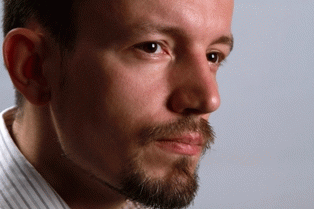Academic Imperialism --
BEIJING - In a recent
Asia Times article Dr. Thorsten Pattberg from
by Thorsten Pattberg
"The true victory (the true 'negation' of the
'negation') occurs when the enemy talks your language" --Slavoj Zizek
The "Frontiers
of Philosophy in
The Journal's open propaganda is striking: the word "philosophy" is a
Western term and concept that is nowhere to be found in pre-colonial East-Asia.
I would guess that 90% of
"Frontiers of Philosophy in China aims to disseminate new scholarly
achievements in the field of broadly defined philosophy, and promote
philosophical researches of the highest level by publishing peer-reviewed
academic articles that facilitate intensive or extensive communication and
cooperation between philosophers in China and abroad. It covers nearly all main
branches of philosophy, with priorities given to original works on Chinese
philosophy or in comparative studies in Chinese philosophy and other kinds of
philosophy in the world."
Apart from the self-praise for being elite and exclusive (it tacitly offers the
title "philosopher" to its authors) - and essentially an old-boy
network - , the 'Aims" propagates the Western term 'philosophy' no less
than eight times. If this looks like ideological indoctrination, that's because
it is ideological indoctrination.
We can only guess at how this propaganda pamphlet came into being; something
along the lines of:
Editor: Hmm, that's awkward. We've put "Philosophy" in our 'Title',
but we couldn't find the term "philosophy" nowhere in Chinese
tradition. Editor-in-Chief: That's why we have to repeat it another eight times
in our 'Aims', Goebbels Law!
The Journal's mission is self-evident: to hammer home "Philosophy in
Many Western Sinologists spent the formative years of their lives learning and
mastering European culture and language, an education that is guided by a
colonial and imperial sense of mission. They inevitably continue old habits and
cultivate a "
Western publishers understandably embrace such ideology. How else can we
explain - given that no "philosophy" existed in
There are exceptions to this propaganda, of course, as seen in neutral titles
like Chinese thought (1960). Yet, even that author had to work in the
word "philosophy" on the book cover for promotional purposes.
One can often guess from the book titles what ideology the publishers (and/or
the authors) are trying to instigate. For example, Cambridge University Press -
maybe because it served British imperialism for so long - is the usual
offender; its title range includes propaganda like Chinese Philosophy
and Virtue Ethics and Consequentialism in Early Chinese Philosophy, and
so forth. On the other hand, Harvard University Press is explicitly more
tactful in its title choices, for example in The World of Thought in Ancient
China (1985) by Benjamin Schwartz.
Most Western universities and those that harbor Western-educated Chinese
require their students to write essays, class assignments, and to attend
seminars on "Chinese philosophy" as if it was a fact of life that the
Hellenic and the Judeo-Christian tradition also applies to the Chinese one.
Many
In these days only those students who are receptive to Western indoctrination
may reach a doctoral level, post-doctoral level, lectureship and then, finally,
a professorship, by which time they will have become so indoctrinated and
subservient, and will have "manufactured" so much propaganda material
on "Chinese philosophy" that they cannot possibly blame an omnipotent
Big West for having deceived them or forced them to do it. Such a confession
would jeopardize their academic careers and vindicate their "good
reputations" (as "peer-reviewers" and "cross-quotation
careerists").
There are thousands of Chinese scholars who still fight for Chinese
terminologies, but who will not be given a voice in Western mainstream media.
Such Chinese are virtually unemployable globally, as they do not conform to
Western standard.
Often Chinese scholars involuntarily support the Western onslaught on Chinese
terminology and, without giving too much thought to it, enabling the Western
hold for power over the history of thought.
Thorsten Pattberg is a German linguist and cultural critic from






